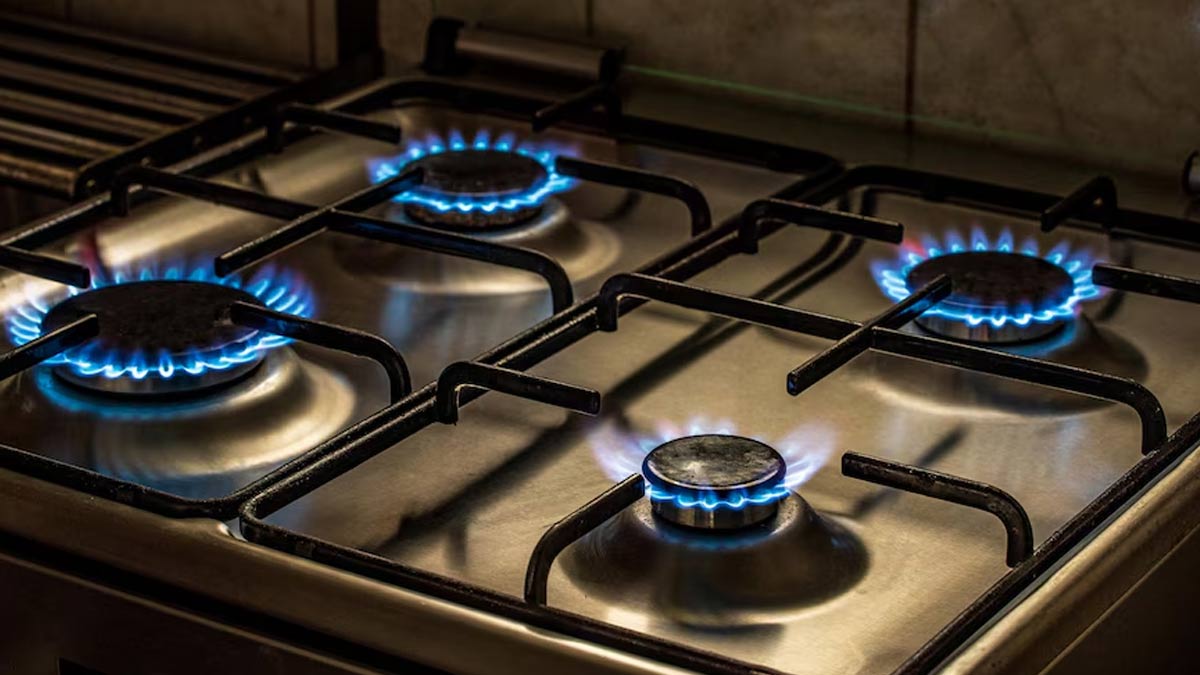
There are many health hazards in your home one of which is the stoves you use to cook your foods. A recent study has brought attention to the potential health risks associated with gas and propane stoves commonly used in homes.
Table of Content:-
The research conducted by Stanford University, published in the journal Science Advances, delves into the impact of these appliances on indoor air quality, particularly concerning levels of nitrogen dioxide (NO2), a pollutant linked to respiratory issues.
The Study Findings
The study involved placing sensors in over 100 homes to monitor NO2 levels before, during, and after gas stove usage. The data collected revealed a concerning trend: homes with gas or propane stoves experienced an average increase of 4 parts per billion (ppb) in NO2 levels over a year. This increase approaches 75% of the World Health Organization's recommended safe limit for indoor and outdoor NO2 exposure.

Side Effects Of NO2 Exposure
NO2 emissions from gas stoves can persist even in areas far from the kitchen, such as bedrooms, posing a health risk to everyone in the household. Professor Rob Jackson, senior author of the study, expressed surprise at seeing pollutant concentrations breach health benchmarks in bedrooms shortly after gas stove use, highlighting the pervasive nature of NO2 emissions from these appliances.
Chronic exposure to NO2 from gas stoves could lead to significant health problems, especially for children. The study estimated that gas stove emissions may contribute to up to 2,00,000 cases of childhood asthma in the United States. Furthermore, long-term exposure to NO2 could potentially result in thousands of deaths annually, comparable to the fatalities associated with secondhand smoke.
Also Read: Expert Shares Risk Factors For Rare, Common, Chronic Headaches That Cause Dizziness

According to the California Air Resources Board, the side effects of NO2 exposure on health are:
- Respiratory Issues: Prolonged exposure to NO2 can irritate the respiratory system, leading to symptoms such as coughing, wheezing, shortness of breath, and chest tightness. It also exacerbates pre-existing respiratory conditions like asthma, bronchitis, or chronic obstructive pulmonary disease (COPD).
- Reduced Lung Function: Long-term exposure to NO2 can impair lung function, especially in children and the elderly. It may decrease lung capacity and affect respiratory efficiency, making it harder to breathe properly.
- Increased Respiratory Infections: Exposure to elevated NO2 levels over time can weaken the respiratory system's defences, making individuals more susceptible to respiratory infections such as pneumonia, bronchitis, and respiratory syncytial virus (RSV) infections.
- Cardiovascular Effects: Chronic NO2 exposure increases the risk of heart attacks, strokes, and hypertension (high blood pressure). It can promote inflammation, oxidative stress, and vascular dysfunction, impacting heart and blood vessel health.
- Developmental and Neurological Effects: Prolonged NO2 exposure, particularly during critical developmental stages such as childhood, can impact cognitive function, learning abilities, and behaviour.
Mitigating Exposure To NO2
To address these health risks, researchers recommend mitigation strategies:
- Use range hoods that vent outdoors
- Ensure proper ventilation during cooking
- Consider alternative cooking appliances like electric stoves or induction cooktops
While gas stoves offer benefits in terms of heating speed and temperature control, it's crucial to weigh these advantages against the potential health consequences.
Also Read: Choosing Jaggery Over Sugar Can Significantly Improve Health And Lower Risk Of Chronic Diseases
The study underscores the need for increased awareness of the health risks associated with gas stoves and emphasises the importance of maintaining good indoor air quality. Further research is essential to fully understand the long-term effects of chronic NO2 exposure from gas and propane stoves, paving the way for informed decisions regarding cooking practices and appliance choices.
Bottomline
Gas and propane stoves play a significant role in households, but their emissions can impact indoor air quality and human health. By adopting appropriate ventilation measures and exploring alternative cooking options, individuals can reduce their exposure to NO2 and promote healthier indoor environments.
Also watch this video
How we keep this article up to date:
We work with experts and keep a close eye on the latest in health and wellness. Whenever there is a new research or helpful information, we update our articles with accurate and useful advice.
Current Version
